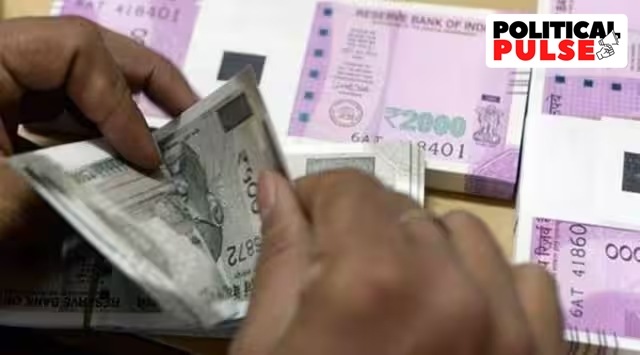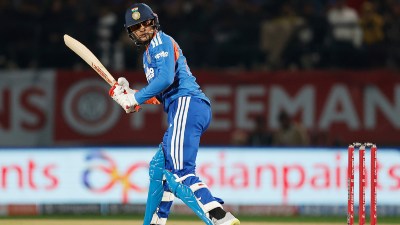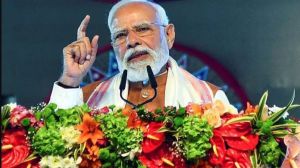A political party taking “cut money” for funds in West Bengal; panchayat officials collecting bribes in Bihar; the “stopping” of funds by a village secretary in Rajasthan; and the sarpanch “forcibly” taking funds in Madhya Pradesh.
These are among the cases flagged by the National Level Monitoring (NLM) agents after assessing the implementation of the Pradhan Mantri Awaas Yojana-Gramin (PMAY-G) — the BJP-led Centre’s flagship programme to provide pucca houses to eligible beneficiaries — in the three reports on the same available with the Union Ministry for Rural Development. The reports were compiled by the Delhi-based CMI Social Research Centre and have been submitted to the ministry.

The ministry can depute NLM agencies for regular monitoring of its major schemes; special monitoring of an individual scheme; and in case of complaints or enquiries.
The special monitoring exercise was rolled out in three phases: 42 NLM agents visited 85 districts in 10 states (January 2022); another 45 went to 111 districts across 25 states (May 2022); and 43 agents visited 110 districts across 24 states (December 2022).
The NLMs were required to visit the selected districts to “assess the ease of living from the experience of PMAY-G beneficiary and the ease of governance from the point of view of the efficacy of implementation processes”.
The Phase-I report speaks of instances of “rent-seeking or corruption” , which although are “reported in very small numbers”, point “towards a corrupt practice”.
It cited two separate cases from West Bengal, where PMAY-G beneficiaries were allegedly required to pay “cut money” of Rs 10,000 and Rs 2,000 each to the panchayat member. The report also talks of a political party collecting “cut money” from beneficiaries in Sankrial block of the state.
Story continues below this ad
The report also highlighted cases where those with a pucca house were allegedly sanctioned PMAY-G houses, quoting examples in Jhalawar, Alwar and Jaipur districts in Rajasthan. In Jaipur, it quoted a case of a “financially well-to-do household” being assisted under PMAY-G.
Besides this, the Phase-II report notes a case from the Inderghadh gram panchayat in Madhya Pradesh’s Shivpuri district, where PMAY-G funds were allegedly withdrawn forcibly by the sarpanch.
In Phase-II, the NLM teams say they found that panchayat officials were collecting bribes money from beneficiaries in Bihar’s Muzaffarnagar and Katihar districts.
Detailing a case of a ward member collecting money from a beneficiary in Bhilwara Roopnath (South) under the Saraiya block in Bihar’s Muzaffarpur, the report said the beneficiary’s family was “continuously pressurised to pay the amount and threatened”.
Story continues below this ad
Flagging instances of problems with execution, the Phase-III report quoted a case from the Bharatpur district in Rajasthan. The beneficiary here reportedly complained to the NLM team members that he had been forced to give Rs 5,000 to the village secretary after the first installment was credited into his account.
“The beneficiary has since managed to complete his house till the roof level and is awaiting further sanction of the next installment in order to complete the construction of the house. However, he complained that the village secretary wanted another Rs 10,000 for filing the due report.”
It added that the “requisite geo-tagging of the structure was being deliberately delayed” and “when queried, the functionaries claimed that they were unaware about this issue and assured that they would look into the matter at the earliest”.

































